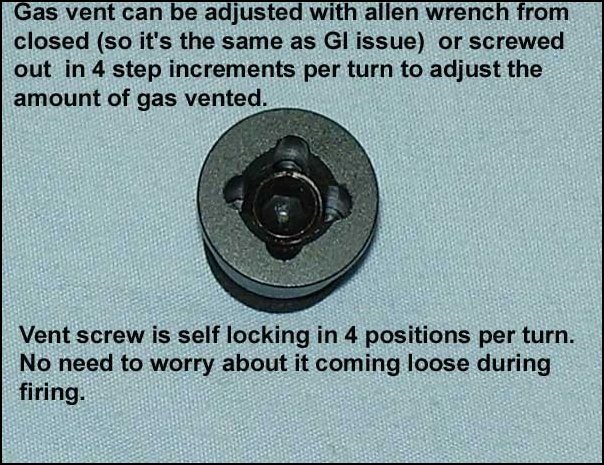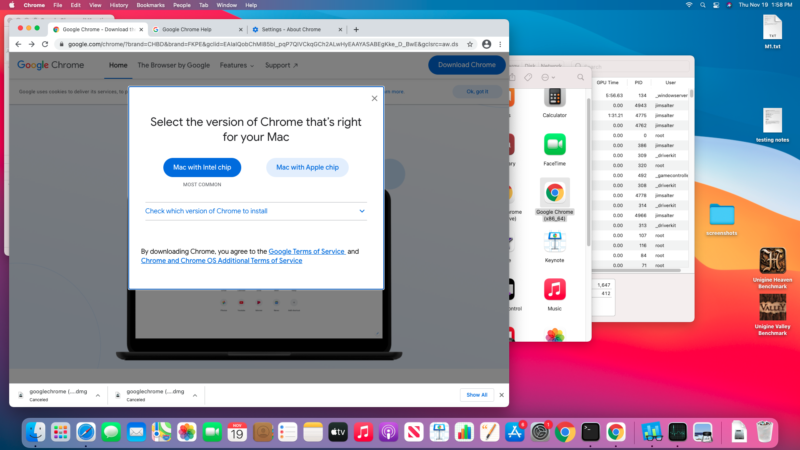The consumer-focused application for personal Google Accounts was updated on January 13 with “improved Apple M1 support.” It specifically “fixed remaining M1 chip issues that prevented. Google updated its Chrome download page yesterday to include a version optimized for macOS devices with the new Apple M1 processor. The roll-out was halted, though, due to apparent crashes. 11/20 Update: Google has now fixed these problems with a new update for the Apple M1 Mac Mini, MacBook Air and MacBook Pro. Google has confirmed a problem in its major new Chrome browser update.
 The Google Chrome browser is now available as an Apple M1 native application, for those of you lucky enough to have M1 Mac Mini, Macbook Air, or Macbook Pro systems. (If you've been living under a rock for the last few weeks, the M1 is Apple's newest in-house-designed ARM silicon, which the company began selling in traditional form-factor laptops and Mac Minis for the first time this week.)
The Google Chrome browser is now available as an Apple M1 native application, for those of you lucky enough to have M1 Mac Mini, Macbook Air, or Macbook Pro systems. (If you've been living under a rock for the last few weeks, the M1 is Apple's newest in-house-designed ARM silicon, which the company began selling in traditional form-factor laptops and Mac Minis for the first time this week.)Google presents Chrome for download as either an x86_64 package or an M1 native option—which comes across as a little odd, since the M1 native version is actually a universal binary, which works on either M1 or traditional Intel Macs. Presumably, Google is pushing separate downloads due to the much smaller file size necessary for the x86_64-only package—the universal binary contains both x86_64 and ARM applications, and weighs in at 165MiB to the Intel-only package's 96MiB.
Performance
 In our earlier testing, we declared that the previous version of Google Chrome—which was available only as an x86_64 binary and needed to be run using Rosetta 2—was perfectly fine. That was and still is a true statement; we find it difficult to believe anyone using the non-native binary for Chrome under an M1 machine would find it 'slow.' That said, Google's newer, ARM-native .dmg is available today, and—as expected—it's significantly faster if you're doing something complicated enough in your browser to notice.
In our earlier testing, we declared that the previous version of Google Chrome—which was available only as an x86_64 binary and needed to be run using Rosetta 2—was perfectly fine. That was and still is a true statement; we find it difficult to believe anyone using the non-native binary for Chrome under an M1 machine would find it 'slow.' That said, Google's newer, ARM-native .dmg is available today, and—as expected—it's significantly faster if you're doing something complicated enough in your browser to notice.Google Chrome M1 Reddit
The first benchmark in our gallery above, Speedometer, is the most prosaic—the only thing it does is populate lists of menu items, over and over, using a different Web-application framework each time. This is probably the most relevant benchmark of the three for 'regular webpage,' if such a thing exists. Speedometer shows a massive advantage for M1 silicon running natively, whether Safari or Chrome; Chrome x86_64 run through Rosetta2 is inconsequentially slower than Chrome running on a brand-new HP EliteBook with Ryzen 7 Pro 4750U CPU.
Advertisement
Google Chrome M1 Chip
Jetstream2 is the broadest of the three benchmarks and includes workloads for data sorting, regular expression parsing, graphic ray tracing, and more. This is the closest thing to a 'traditional' outside-the-browser benchmark and is the most relevant for general Web applications of all kinds—particularly heavy office applications such as spreadsheets with tons of columns, rows, and formulae but also graphic editors with local rather than cloud processing. Chrome x86_64 under Rosetta2 takes a significant back seat to everything else here—though we want to again stress that it does not feel at all slow and would perform quite well compared to nearly any other system.
Finally, MotionMark 1.1 measures complex graphic animation techniques in-browser and nothing else. Safari enjoys an absolutely crushing advantage on this test, more than doubling even M1-native Chrome's performance. The Apple M1's GPU prowess also has an inordinate impact on these test results, with Chrome both native and x86_64 translated on the M1 outrunning Chrome on the Ryzen 7 Pro 4750U powered HP EliteBook.
Since the November launch of Apple Silicon-powered Macs, third-party developers have been steadily updating their apps with native support. Google now plans to update Drive File Stream in April with M1 support.
Backup and Sync works with Google Drive and Photos. It’s a fairly standard client that lets you sync all (or just some of) your files/folders, including images and videos. Meanwhile, Drive File Stream — which is getting renamed — is intended for Workspace customers and features an on demand model.
The applications did not work on the Macs introduced late last year, and were showstoppers for some new buyers. Google’s support document for the enterprise client explains how:
Drive File Stream currently doesn’t support ARM-based Windows laptops and tablets, including the Microsoft Surface Pro X. And Drive File Stream does not yet support Apple M1 devices.
The consumer-focused application for personal Google Accounts was updated on January 13 with “improved Apple M1 support.” It specifically “fixed remaining M1 chip issues that prevented previous versions of Backup and Sync from running for some users.”
Backup and Sync version 3.54 and above supports macOS Big Sur (version 11) including Apple devices with the Apple M1 chip.
M1 Google Chrome Web
Meanwhile, “Google Drive for desktop” — Drive File Stream’s new name — will support Apple M1 devices when version 47.0 is released in April.
Google Chrome was quickly updated back in November, leaving Drive File Stream today as the only application lacking native support.
More about Google Drive:
Chrome For Macs
FTC: We use income earning auto affiliate links.More.

